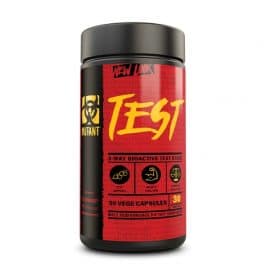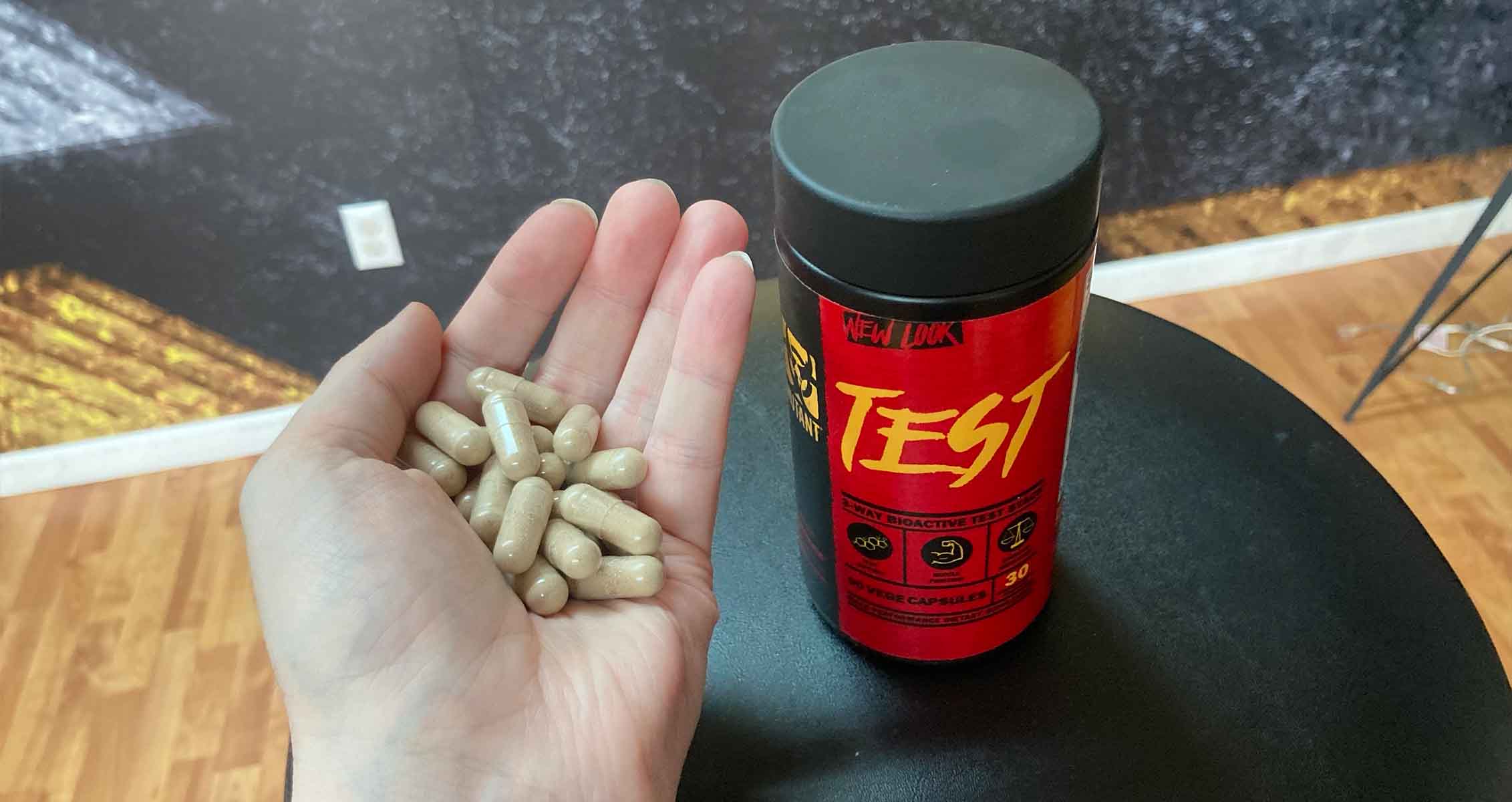Are you in a healthy range?
Testosterone is a vital hormone that plays a crucial role in the overall health and well-being of both men and women. Commonly associated with muscle growth, libido, and vitality, testosterone influences numerous bodily functions. Maintaining healthy testosterone levels is essential for preventing health problems, enhancing performance, and improving quality of life.
Let’s take a look at what exactly the “healthy” testosterone levels look like in the average human.
What Is Testosterone?
Testosterone is an essential hormone primarily produced in the testes in men and, to a lesser extent, in the ovaries in women. It is also synthesized by the adrenal glands in both sexes. This hormone is responsible for regulating a wide variety of functions, including:
- Sex drive and fertility
- Muscle mass and strength
- Bone density
- Fat distribution
- Red blood cell production
In men, testosterone levels are highest during adolescence and early adulthood, but they gradually decline with age. Women also have lower levels of testosterone, which is equally essential for maintaining energy, libido, and overall well-being.
Healthy Testosterone Levels
For Men:
Testosterone levels are measured in nanograms per deciliter (ng/dL) through a blood test. According to the American Urological Association (AUA) and other health organizations:
- Normal Range: 300 to 1,000 ng/dL
- Optimal Range (for younger men): Typically between 400 and 700 ng/dL, with levels peaking in early adulthood.
For Women:
Women’s testosterone levels are much lower but still critical for various health functions. The normal reference range for women is:
- Normal Range: 15 to 70 ng/dL
- Optimal Range: Between 20 and 50 ng/dL, with levels fluctuating due to the menstrual cycle and aging.
Age-Related Decline in Testosterone
As men age, testosterone levels naturally decline, typically by 1% to 2% per year after age 30 or 40. This gradual decrease in testosterone can lead to symptoms like reduced energy, decreased libido, and loss of muscle mass, often referred to as “andropause.” In women, testosterone levels also drop after menopause, contributing to fatigue, mood changes, and reduced sexual desire.
Symptoms of Low Testosterone (Hypogonadism)
When testosterone levels fall below the normal range, this can result in hypogonadism, a condition characterized by a variety of symptoms:
- Fatigue
- Loss of muscle mass and strength
- Low libido and erectile dysfunction
- Mood swings or depression
- Difficulty concentrating
For men, testosterone levels below 300 ng/dL are typically considered low, but symptoms should also be factored in when diagnosing hypogonadism.
For women, low testosterone levels can contribute to reduced sexual desire, mood instability, and even osteoporosis due to a decrease in bone density. It’s important to acknowledge that low testosterone is not solely a male issue; women can experience negative health effects from low levels as well.
Do High Testosterone Levels Cause Issues?
While low testosterone can lead to numerous health problems, having excessively high levels can be just as problematic. In men, very high testosterone levels may result from anabolic steroid abuse or excessive use of steroids or testosterone replacement therapy (TRT). Symptoms of high testosterone in men include:
- Aggression and irritability
- Increased body hair
- Acne and oily skin
- Sleep disturbances
- Prostate issues
In women, high testosterone levels can result in conditions like polycystic ovary syndrome (PCOS), which can lead to symptoms such as:
- Excess facial and body hair (hirsutism)
- Acne
- Irregular menstrual cycles
- Infertility
Testing Testosterone Levels
If you experience symptoms of low or high testosterone, it’s important to get your levels checked. Blood tests provide the most accurate method for measuring testosterone levels, and a test is usually conducted in the morning when levels are at their highest.
Doctors may test for:
- Total Testosterone: The total amount of testosterone in your blood, including both bound and unbound forms.
- Free Testosterone: The portion of testosterone that is not bound to proteins and is available for use by the body. Free testosterone is a more accurate indicator of bioavailable testosterone.
Maintaining Healthy Testosterone Levels
Maintaining optimal testosterone levels is crucial for overall health. Here are several ways to support and sustain healthy testosterone levels:
1. Diet:
A balanced diet rich in healthy fats, lean proteins, and vegetables can help support testosterone production. Key nutrients like zinc and Vitamin D play significant roles in maintaining testosterone levels.
2. Exercise:
Resistance training, such as weightlifting, has been shown to boost testosterone levels. High-intensity interval training (HIIT) is also effective in supporting hormone balance.
3. Sleep:
Aim for 7 to 9 hours of sleep each night. Sleep deprivation can significantly lower testosterone levels.
4. Stress Management:
Chronic stress leads to elevated cortisol levels, which can suppress testosterone production. Practices like meditation, yoga, and regular physical activity can help reduce stress.
5. Avoid Substance Abuse:
Anabolic steroids, excessive alcohol, and recreational drugs can negatively impact testosterone levels.
6. Consult a Doctor:
If you experience symptoms of low testosterone or are diagnosed with hypogonadism, your doctor may recommend testosterone replacement therapy (TRT). However, this should always be done under medical supervision to avoid complications.
MUTANT® TEST: A Game-Changing Testosterone Booster
Higher testosterone levels make it easier for you to gain muscle mass, lose fat, feel energetic and have a healthy libido, and as you get older your levels will drop. MUTANT TEST is here to help.
While lifestyle factors such as diet, exercise, and sleep play essential roles in maintaining testosterone levels, supplements can offer an additional boost. One such supplement is MUTANT® TEST, a cutting-edge testosterone booster specifically designed to elevate active testosterone levels.
What Makes MUTANT® TEST Different?
Many testosterone-boosting products on the market only raise total testosterone, much of which is bound to proteins like sex hormone-binding globulin (SHBG), rendering it inactive for muscle growth. MUTANT® TEST stands out because it focuses on increasing the active forms of testosterone, which the body can use to build muscle and enhance performance.
The key ingredient in MUTANT® TEST is Testosurge®, a clinically proven compound that naturally and rapidly increases the body’s active testosterone levels. Unlike other products that take a long time to show effects, MUTANT® TEST works quickly to boost testosterone, allowing users to experience benefits such as:
- Increased muscle mass and strength
- Improved libido
- Faster recovery from exercise
- Enhanced energy and vitality
With a formula that includes 18 concentrated ingredients, MUTANT® TEST provides a comprehensive approach to testosterone enhancement. It fights back against the inevitable decline in testosterone levels as you age, helping you maintain your edge in the gym and in life.
Why Choose MUTANT® TEST?
MUTANT® TEST isn’t just another testosterone booster. It’s designed for those who take their fitness and performance seriously. By naturally elevating the active testosterone forms, MUTANT® TEST offers a significant advantage over competitors. It’s ideal for athletes, bodybuilders, and anyone looking to boost testosterone levels and improve overall performance.
Read our full review of MUTANT TEST.
Conclusion
Healthy testosterone levels are vital for physical and mental health, influencing everything from muscle mass to libido. While aging leads to a natural decline in testosterone, maintaining a healthy lifestyle through proper diet, exercise, sleep, and stress management can help sustain optimal levels.
For those looking for an additional edge, a high-quality testosterone booster like MUTANT® TEST can be an effective solution. With its unique formula and ability to raise active testosterone levels, it’s a powerful tool in the fight against declining testosterone, helping you achieve the results you want faster and more efficiently.
Let us know what you think in the comments below. Also, be sure to follow Generation Iron on Facebook, Twitter, and Instagram.











